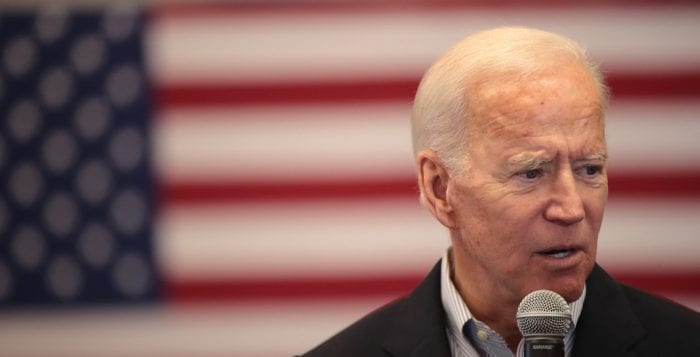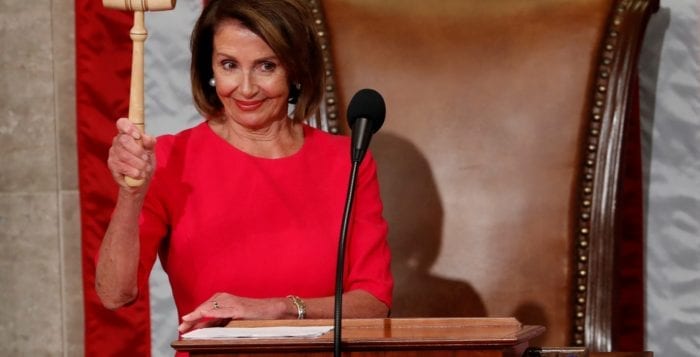By Daniel Dunaief

The Democratic hopefuls for the presidency sure seem angry these days, as the election clock counts down to less than a year. Last week, a man in Iowa had the audacity, the temerity, the unmitigated gall to ask Joe Biden, the front runner, about his son Hunter, who is at the center of this Ukrainian maelstrom.
Biden reacted with anger and righteous indignation, calling the man a “damn liar.”
Good one. Or was it? Is that really the best way to react? Biden then nicknamed him “fat.” Yikes! That seemed cruel and disrespectful.
The man was throwing salt in either self-inflicted or Republican-directed wounds. But, hey, Biden’s son did sit on the board of an energy company in the Ukraine, which creates bad optics. It doesn’t mean he or his son did anything wrong.
What’s weird now, though, is that Biden seemed to feel the need — or perhaps the test-marketed driven necessity — to attack the man who dared ask the question. That seems to be taking a page out of the book of the incumbent, who uses anger as a regular tool to define his enemies and keep them off balance, while rallying his troops.
So, what happened to Mike Bloomberg? The billionaire was recently asked whether he was trying to buy the election. Out came the righteous indignation, along with a story about how he made his money, all the great work he did as mayor and how he won’t be beholden to any special interests. Grrr!
What about Bernie Sanders? He’s a cult figure among many Democrats, but his demeanor seems to be one of the angry, older white man. He reminds me of the Howard Beale character, played by Peter Finch, in the 1976 movie “Network.” Beale urges people to get up out of their chairs, go to the window and shout, “I’m as mad as hell, and I’m not going to take this anymore!”
Sanders, or the Larry David version of him, could easily be uttering the same line in response to (a) health care costs, (b) the cost of college tuition for people who could otherwise use education to change their lives, (c) climate change or (d) all of the above.
And then there’s the Speaker of the House Nancy Pelosi. I know she’s not running for president, but she finally lashed out at a reporter — does that also sound familiar — and suggested that her religion kept her from hating people. Her tone, method and message had more than a hint of anger, if not toward the president whom she and the Democrats were impeaching than to the reporter.
The words she spoke, as she pointed her finger, were, “Don’t mess with me.” I was reminded of the line Geraldine Fitzgerald, as Martha Bach, said in the 1981 movie “Arthur,” starring Dudley Moore, “Don’t screw with me, Burt.”
If this past week is a preview of the upcoming primary and general elections, we’ve got about 11 months of Beale slogans and Bachs slaps to the faces.
The wrestling match may once again change its tune for “the Ds” and “the Rs” when we know which D will be facing off against the most likely R.
Maybe the Ds host a party for themselves where they describe the hopes, opportunities and promise of the American Dream for one and all.
Maybe the Rs decide counterpunching has been overplayed, and they start hosting their own party, where they celebrate low taxes, low unemployment, a strong economy and their plans for an even better future.
Primal anger, however, seems more likely as we prepare for a testy election. Wouldn’t it be a welcome relief if at least one of the candidates offered civil, calm, graceful and pleasant replies, even to questions he or she found challenging?



 This new year may come to be known as the Year of the Older Woman. That was my thought as I read The New York Times article by Jessica Bennett, “I am (an older) woman. Hear me roar.” The story goes on to cite Nancy Pelosi, Glenn Close and Susan Zirinsky, the newly named head of CBS News, among others, as examples of powerful women over 60 in the spotlight.
This new year may come to be known as the Year of the Older Woman. That was my thought as I read The New York Times article by Jessica Bennett, “I am (an older) woman. Hear me roar.” The story goes on to cite Nancy Pelosi, Glenn Close and Susan Zirinsky, the newly named head of CBS News, among others, as examples of powerful women over 60 in the spotlight.


